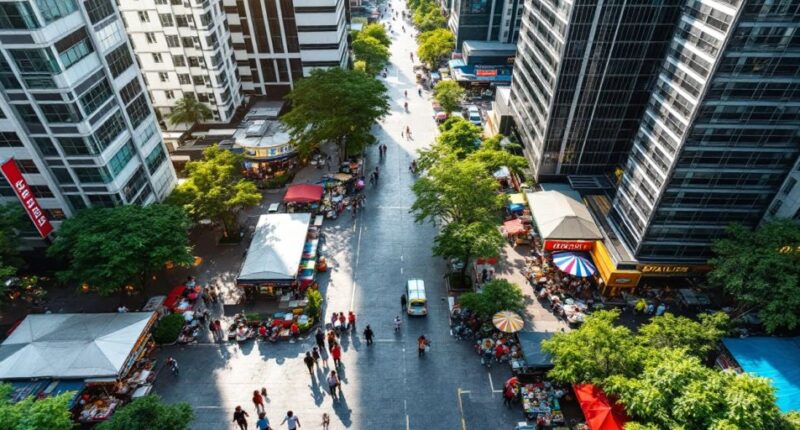On October 18, Malaysia unveiled its largest national budget in history, totaling 421 billion ringgit (approximately US$96 billion) for 2025. This budget aims to enhance the economy's competitiveness through new tax incentives, reduced subsidies, and the development of new economic clusters. The government plans to narrow the deficit to 3.8% of GDP, with an expected economic growth rate of 4.5% to 5.5% in 2025.
Key Takeaways
- Total Budget: 421 billion ringgit (US$96 billion)
- Operating Expenditure: 335 billion ringgit (US$76.4 billion)
- Development Projects: 86 billion ringgit (US$19.6 billion)
- Deficit Target: 3.8% of GDP
- Projected Economic Growth: 4.5% to 5.5%
New Investment Incentive Framework
The New Investment Incentive Framework (NIIF) has been introduced with an allocation of 1 billion ringgit (US$228 million). This framework aims to attract foreign investment in high-value activities, set to be implemented in the third quarter of 2025.
Tax Incentives for Exports
Under the NIIF, businesses exporting integrated circuits will benefit from a 70% income tax exemption on statutory income derived from increased exports, enhancing the economic complexity of Malaysia’s electrical and electronics sector.
Supply Chain Resilience Incentives
To strengthen the local supply chain, the following incentives will be provided:
- Double Tax Deductions: For Multinational Enterprises (MNEs) on eligible supply chain resilience expenses, capped at 2 million ringgit (US$456,000) per year for three years.
- Tax Deductions: For investments in joint ventures with local vendors.
- Matching Investment Fund: 100 million ringgit (US$22.8 million) to support local suppliers in key sectors.
Environmental Incentives
Investment tax allowances or income tax exemptions will be available for carbon capture, utilization, and storage (CCUS) activities, promoting investments aligned with environmental, social, and governance (ESG) standards.
Special Economic Zones
Johor-Singapore Special Economic Zone
Incentives will be introduced for the Johor-Singapore Special Economic Zone, aimed at fostering economic collaboration between the two regions.
Forest City Special Economic Zone
The Forest City initiative will offer:
- Zero Percent Tax Rate: For family offices under the Single-Family Office Scheme.
- Corporate Income Tax Rate: Between zero and five percent for businesses in financial technology and global business services.
- Reduced Income Tax Rate: Of 15% for skilled professionals.
Tax Incentives for E-Invoicing and Automation
- E-Invoicing: Accelerated capital allowance for ICT equipment and software for e-invoicing purposes.
- Automation: Accelerated capital allowance for capital expenditures in various sectors.
Changes in Taxation
- Dividend Tax: A two percent tax on individual shareholders with annual dividend income exceeding 100,000 ringgit (US$22,800).
- Sales and Service Tax: Increase on non-essential items starting May 1, 2025.
- Carbon Tax: Introduction in 2026 for the steel, iron, and energy industries.
Minimum Wage Increase
The minimum wage will rise to 1,700 ringgit (US$388) in February 2025, with a six-month deferment for businesses with fewer than five employees.
Sources
- Malaysia Budget 2025: Key Business Incentives, Taxes, and Impacts, ASEAN Briefing.

